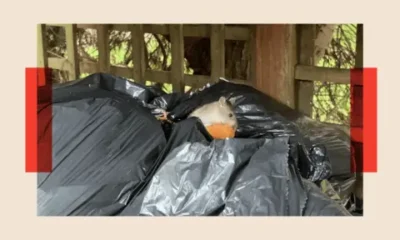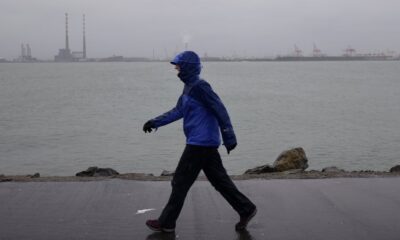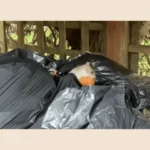Breaking News
Starmer says Labour had ‘shied away’ from concerns over illegal immigration
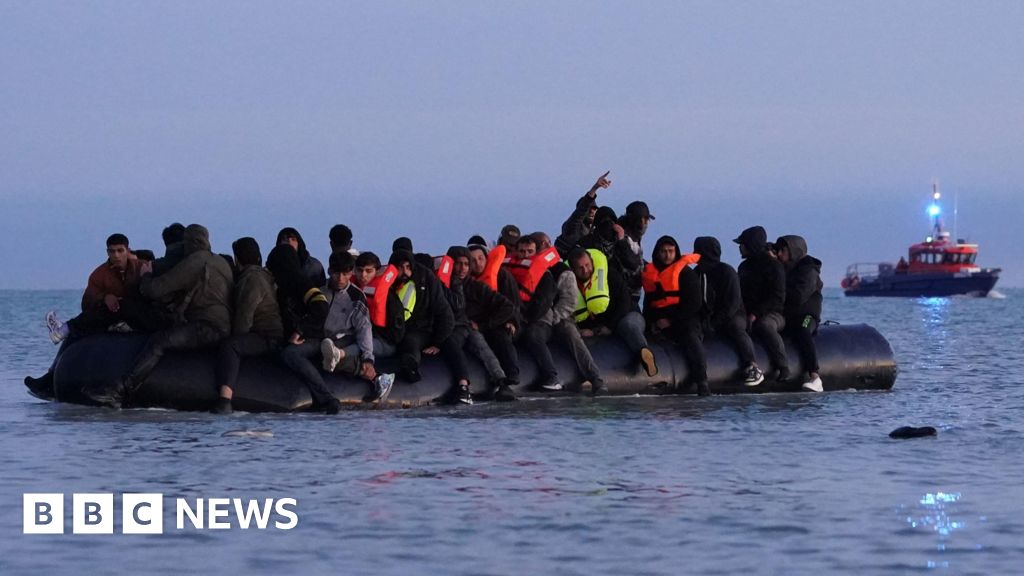
Read more on post.
Sir Keir Starmer has said a new digital ID scheme will make it tougher to work in the UK illegally and offer “countless benefits” to citizens.
Plans for a compulsory UK-wide digital ID scheme will be announced officially by Starmer in a speech on Friday, as part of Labour’s push to address illegal immigration.
Separately writing in the Telegraph, the prime minister publicly acknowledged that left-wing parties, including Labour, “shied away” from concerns around illegal immigration.
He added that Labour was being forced to counter the “rise of the populist right”, noting the increasing popularity of Reform UK posed a challenge for both the Conservatives and the left.
His government has been under pressure to tackle the issue, with more than 50,000 migrants arriving on small boats since Labour came to power.
In announcing his plans for the new digital ID scheme, Sir Keir said: “I know working people are worried about the level of illegal migration into this country.
“A secure border and controlled migration are reasonable demands, and this government is listening and delivering.”
He added that “Digital ID is an enormous opportunity for the UK. It will make it tougher to work illegally in this country, making our borders more secure.
“And it will also offer ordinary citizens countless benefits, like being able to prove your identity to access key services swiftly – rather than hunting around for an old utility bill.”
“There is no doubt that for years, left-wing parties, including my own, did shy away from people’s concerns around illegal immigration,” Sir Keir wrote in the Telegraph.
“It has been too easy for people to enter the country, work in the shadow economy and remain illegally.”
There will be no requirement for individuals to carry their ID or be asked to produce it, Downing Street said, though digital ID will be mandatory as a means of proving right to work in the UK.
Employers already have to carry out checks on prospective candidates.
Shadow Work and Pensions Secretary Helen Whately criticised the scheme, she said it is going to “make law-abiding people have to jump through more hoops and employers have more red tape”.
She told BBC Radio 4’s Today programme that “illegal working in the grey economy will go on”.
The government said the roll-out will make it simpler to apply for services like driving licenses, childcare and welfare – as well as streamlining access to tax records.
It added that the new scheme will “send a clear message that if you come here illegally, you will not be able to work, deterring people from making these dangerous journeys”.
The new digital ID will be held on people’s phones, just as contactless payment cards or the NHS app used by millions.
Downing Street said the new scheme will “take the best aspects” of digital identification systems already in place in other countries.
In Australia, citizens can use their digital identification to access private services such as banking or buying alcohol, while students in Denmark can use their ID to retrieve education records and qualifications.
Digital ID has enabled parents to access child benefits, health records and applications for nursery schemes without having to provide the same information twice.
Meanwhile, the government said that India has saved around US $10 billion annually by reducing fraud and leakages in welfare schemes through their digital identification programme.
Sir Keir wrote that the government “must make and win the case for patriotic national renewal, based on enduring British values”, calling on “fair-minded Britons” to reject Reform’s “toxic” solution.
He also warned against the perils of “poisonous” online debate, and of a “coming struggle, a defining struggle, a violent struggle” for the nation.
Addressing the wave of protests that took place outside UK asylum hotels over the summer, the prime minister said his party would “reject the quick-fix solutions from those who want to divide” and instead focus on “restoring power to local communities”.
The government announced a £5bn funding boost for 339 “overlooked” communities on Thursday, with specific spending to be determined by those who “know their communities best”.
The announcement is part of Labour’s strategy to tackle the electoral threat posed to them by the rising popularity of Reform UK, and will include the £1.5bn pledged to 75 of the “most deprived” areas in the UK earlier this year.
Reform UK won big in local elections earlier this year, taking control of 10 councils as both Labour and the Conservatives suffered their biggest local election defeats.
Sir Keir is expected to defend his party’s approach to immigration in his speech on Friday, detailing the new digital ID scheme while laying blame for illegal immigration on what he has called the “Conservative government’s failure” over 14 years in office.
He will be addressing the Global Progress Action Summit in London on Friday. The summit will bring together progressive leaders, policy experts and strategists from across more than 20 countries.
The Institute for Public Policy Research, who are co-hosting the event, said the focus will be on “national security, growth that works for working people, migration in an age of global movement, and building fair societies based on solidarity and reciprocity”.
Labour’s annual party conference opens in Liverpool this weekend.
Conservative leader Kemi Badenoch has characterised the announcement as a “desperate gimmick” to distract attention from the “leadership manoeuverings” of Greater Manchester Mayor Andy Burnham ahead of Labour’s annual conference next week.
Reform denounced the plan as a “cynical ploy to fool voters that something is being done about illegal immigration”.
The Liberal Democrats, who played a central role in blocking the previous Labour government’s ID cards, have said they “cannot support” a mandatory scheme.
Breaking News
Danish airport closes again after reported drone sighting
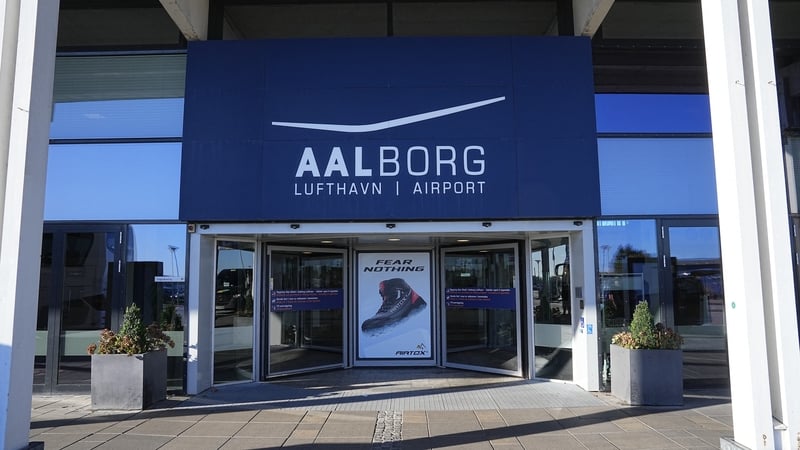
Read more on post.
A suspected drone sighting briefly shuttered a Danish airport this morning for the second time in a few hours, after the country’s prime minister said the flights were part of “hybrid attacks” that may be linked to Russia.
Drones have been seen flying over several Danish airports since Wednesday, causing one of them to close for hours, after a sighting earlier this week prompted Copenhagen airport to shut down.
That followed a similar incident in Norway, drone incursions in Polish and Romanian territory and the violation of Estonian airspace by Russian fighter jets, which raised tensions in light of Russia’s ongoing invasion of Ukraine.
“Over recent days, Denmark has been the victim of hybrid attacks,” Prime Minister Mette Frederiksen said yesterday in a video message on social media – referring to a form of unconventional warfare.
She warned that such drone flights “could multiply”.
Investigators said they had so far failed to identify those responsible, but Ms Frederiksen stressed: “There is one main country that poses a threat to Europe’s security, and it is Russia.”
Moscow said yesterday that it “firmly rejects” any suggestion that it was involved in the Danish incidents. Its embassy in Copenhagen called them “a staged provocation”, in a post on social media.
Denmark’s Justice Minister Peter Hummelgaard earlier said the aim of the attack was “to spread fear, create division and frighten us”.
He added that Copenhagen would acquire new enhanced capabilities to “detect” and “neutralise drones”.
Denmark will later today join other EU countries, mostly along the eastern border with Russia, in the first talks on proposals to build a “wall” of anti-drone defences in the face of the tensions with Moscow.
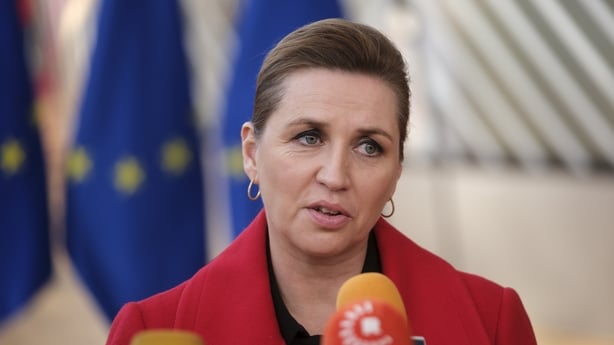
Drones have been seen flying over several Danish airports since Wednesday, causing one of them to close for hours, after a sighting earlier this week prompted Copenhagen airport to shut down.
That followed a similar incident in Norway, drone incursions in Polish and Romanian territory and the violation of Estonian airspace by Russian fighter jets, which raised tensions in light of Russia’s ongoing invasion of Ukraine.
“Over recent days, Denmark has been the victim of hybrid attacks,” Prime Minister Mette Frederiksen said yesterday in a video message on social media – referring to a form of unconventional warfare.
She warned that such drone flights “could multiply”.
Investigators said they had so far failed to identify those responsible, but Ms Frederiksen stressed: “There is one main country that poses a threat to Europe’s security, and it is Russia.”
Moscow said yesterday that it “firmly rejects” any suggestion that it was involved in the Danish incidents. Its embassy in Copenhagen called them “a staged provocation”, in a post on social media.
Denmark’s Justice Minister Peter Hummelgaard earlier said the aim of the attack was “to spread fear, create division and frighten us”.
He added that Copenhagen would acquire new enhanced capabilities to “detect” and “neutralise drones”.
Denmark will later today join other EU countries, mostly along the eastern border with Russia, in the first talks on proposals to build a “wall” of anti-drone defences in the face of the tensions with Moscow.
Russia sabotage warning
Drones were spotted on Wednesday and early yesterday morning at airports in Aalborg, Esbjerg, Sonderborg and at the Skrydstrup air base before leaving on their own, police said.
Aalborg airport, located in northern Denmark, was initially shut down for several hours, and closed again for about an hour from late last night into early this morning due to another suspected sighting.
“It was not possible to take down the drones, which flew over a very large area over a couple of hours,” North Jutland chief police inspector Jesper Bojgaard Madsen said about the initial Aalborg incident.
The head of Denmark’s military intelligence, Thomas Ahrenkiel, told a news conference the service had not been able to identify who was behind the drones.
But intelligence chief Finn Borch said: “The risk of Russian sabotage in Denmark is high.”
Danish Defence Minister Troels Lund Poulsen told a news conference the flights appeared to be “the work of a professional actor… such a systematic operation in so many locations at virtually the same time”.
He said it had posed “no direct military threat” to Denmark.
Ms Frederiksen said Thursday that she had spoken with NATO chief Mark Rutte about the incidents.
Lund Poulsen said the government had yet to decide whether to invoke NATO’s Article 4, under which any member state can call urgent talks when it feels its “territorial integrity, political independence or security” are at risk.
French President Emmanuel Macron said his country stood ready “to contribute to the security of Danish airspace”.
Copenhagen is set to host a summit of European Union leaders next week.
Breaking News
School scanners for pupils thought to have weapons

Read more on post.
Anna LewisBBC Wales
Handheld scanners will be used to search children suspected of having a weapon in Cardiff schools under new guidance.
The guidelines, which are thought to be the first of their kind in Wales, deal with what happens when a child is thought to be carrying a weapon, and the next steps if one is found.
Cardiff council said it had been designed after calls by head teachers for up-to-date advice to keep students and staff safe, following growing concerns about knife crime in schools.
Sarah Merry, the council’s cabinet member for education, said while she understood parents “may feel anxious about the idea of searches”, they would not be part of a daily school routine or “done lightly”.
In 2013, the Welsh government introduced a power which allowed schools in Wales to screen pupils for a knife or other weapons, and to search pupils suspected of carrying a weapon.
New guidance sent to parents in Cardiff states a search may be necessary if staff have a “reasonable” suspicion that a young person has a weapon in school.
During a search, it added two members of staff would be present, and that in most cases a “search wand” would be used to remove any physical contact.
“Parents or carers will be informed following a search and the reasons for the search will be explained,” the guidance adds, with the purpose of the search also explained to the student.
Under the guidelines, if a weapon is found then an incident review meeting should be arranged within five school days of the incident with “at least one daily welfare check”.
The young person should not be allowed to go to school until this meeting has taken place, while a “trauma-informed investigation” would then take place to understand why the young people brought the weapon into school and the next steps that should be taken.
According to Cardiff council, the guidelines recognise “there are often complex reasons why a young person might carry a weapon” and encourages schools to work with families and other services so support can be put in place.
The guidelines have been rolled out to all primary, secondary and special schools after being developed through consultation with children, and co-produced with partners including South Wales Police, youth services and violence prevention experts.
Merry, who is also council deputy leader, said: “Head teachers have been asking for revised support in this area and it’s absolutely right that we’ve worked closely with them to create something practical and useful.
“It is also part of our review following incidents in other parts of the country and gives schools the tools they need to keep everyone safe – it’s not about creating fear; it’s about building confidence.”
As well as guidance on weapons, each school in Cardiff has appointed a violence prevention lead, who are senior staff members that will take part in specialist training to prepare them for real-life situations involving weapons or threats to safety.
Other actions taken to keep schools safe include lockdown rehearsals to help schools prepare for emergencies, and using the curriculum to “build a culture of respect and safety”.
Breaking News
Tánaiste discusses Irish-US economic ties in Washington
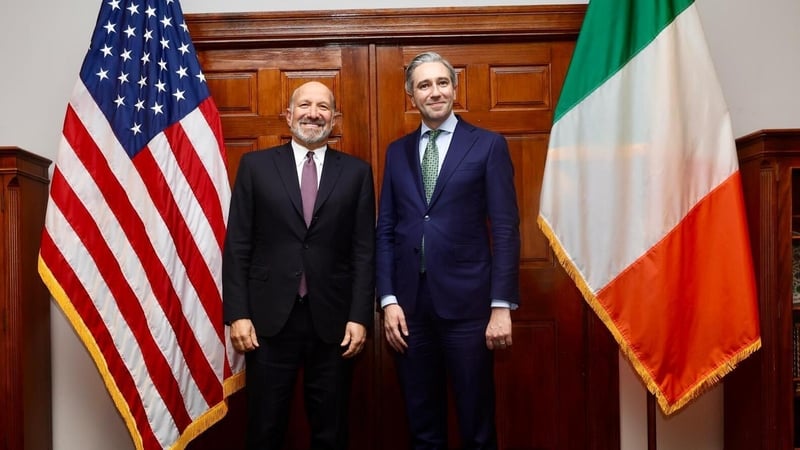
This post was originally published on this site.
Tánaiste Simon Harris has met with US Secretary of Commerce Howard Lutnick in Washington DC.
The meeting at the Department of Commerce was an opportunity to discuss the dynamic economic, trade and investment relationship between Ireland and the US.
It was also a chance to take stock on the implementation of the EU-US Framework on an Agreement on Reciprocal, Fair and Balanced Trade agreed in July.
They discussed the potential of expanding the list of goods that are exempt from the baseline 15% tariff rate.
Ireland has a particular interest in this as it relates to the spirits and med-tech sectors. They also discussed the issue of non-tariff barriers as well as the ongoing Section 232 investigations on pharmaceuticals and semiconductors.
They exchanged views on the impact of the expansion of the Section 232 measures on certain steel and aluminium given the impact of these on a number of Irish manufacturers, particularly in the agri-tech sector.
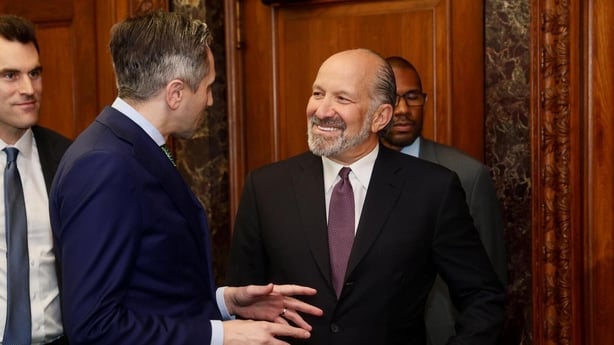
Mr Harris raised the recent proposal by the US to raise the cost of H1B visas applications, and noted the importance of pathways for high-skilled workers, innovators and job creators to live and work in the US.
More broadly the meeting was an opportunity to discuss the mutually beneficial economic relationship between Ireland and the US, and how it can be protected and deepened in the time ahead.
The Tánaiste took the opportunity to update Mr Lutnick on the economic impact report: Ireland and the USA: a shared economic story – which he launched.
The report shows the impact of Irish companies investing across all 50 states.
-
Culture3 days ago
Taylor Swift’s new cinema outing generates more than €12million in just 24 hours
-
Politics3 days ago
European Parliament snubs Orbán with vote to shield Italian MEP from Hungarian arrest
-
Health4 days ago
EU renews support for WHO’s Universal Health Coverage Partnership
-
Culture3 weeks ago
Life, loss, fame & family – the IFI Documentary Festival in focus
-
Environment6 days ago
Key oceans treaty crosses threshold to come into force
-
Culture3 days ago
Twilight at 20: the many afterlives of Stephenie Meyer’s vampires
-
Culture2 months ago
Fatal, flashy and indecent – the movies of Adrian Lyne revisited
-
Culture1 week ago
Farewell, Sundance – how Robert Redford changed cinema forever


